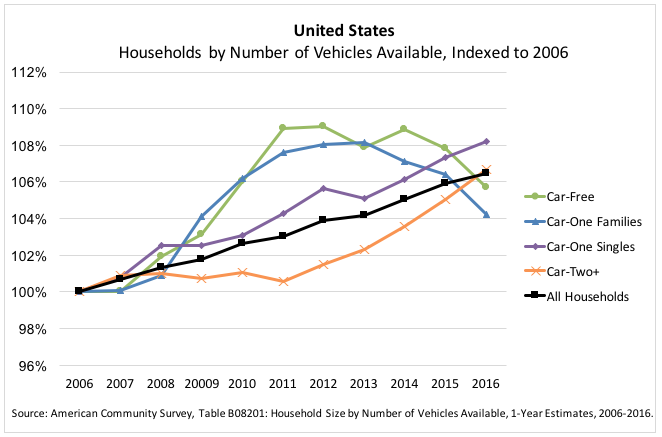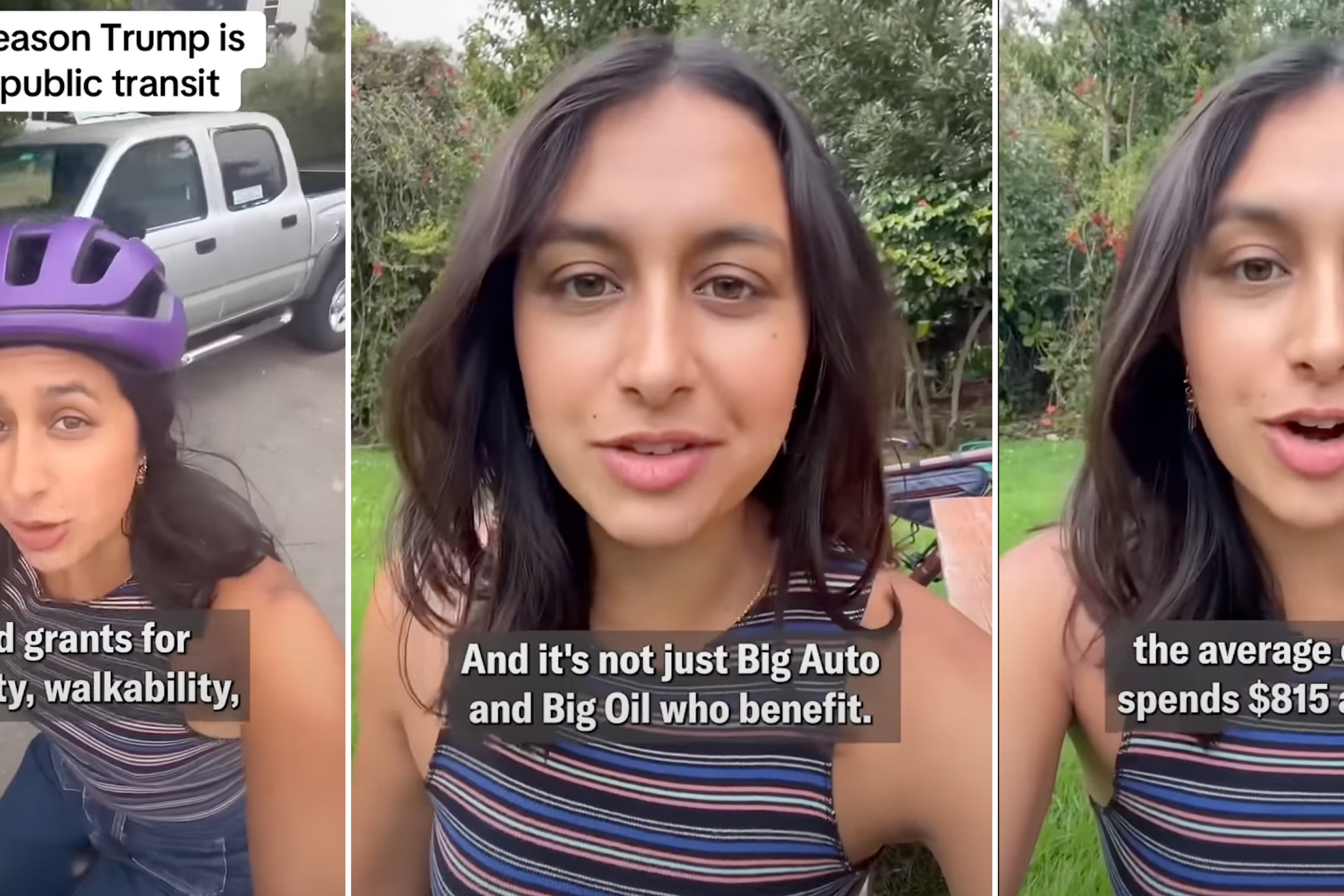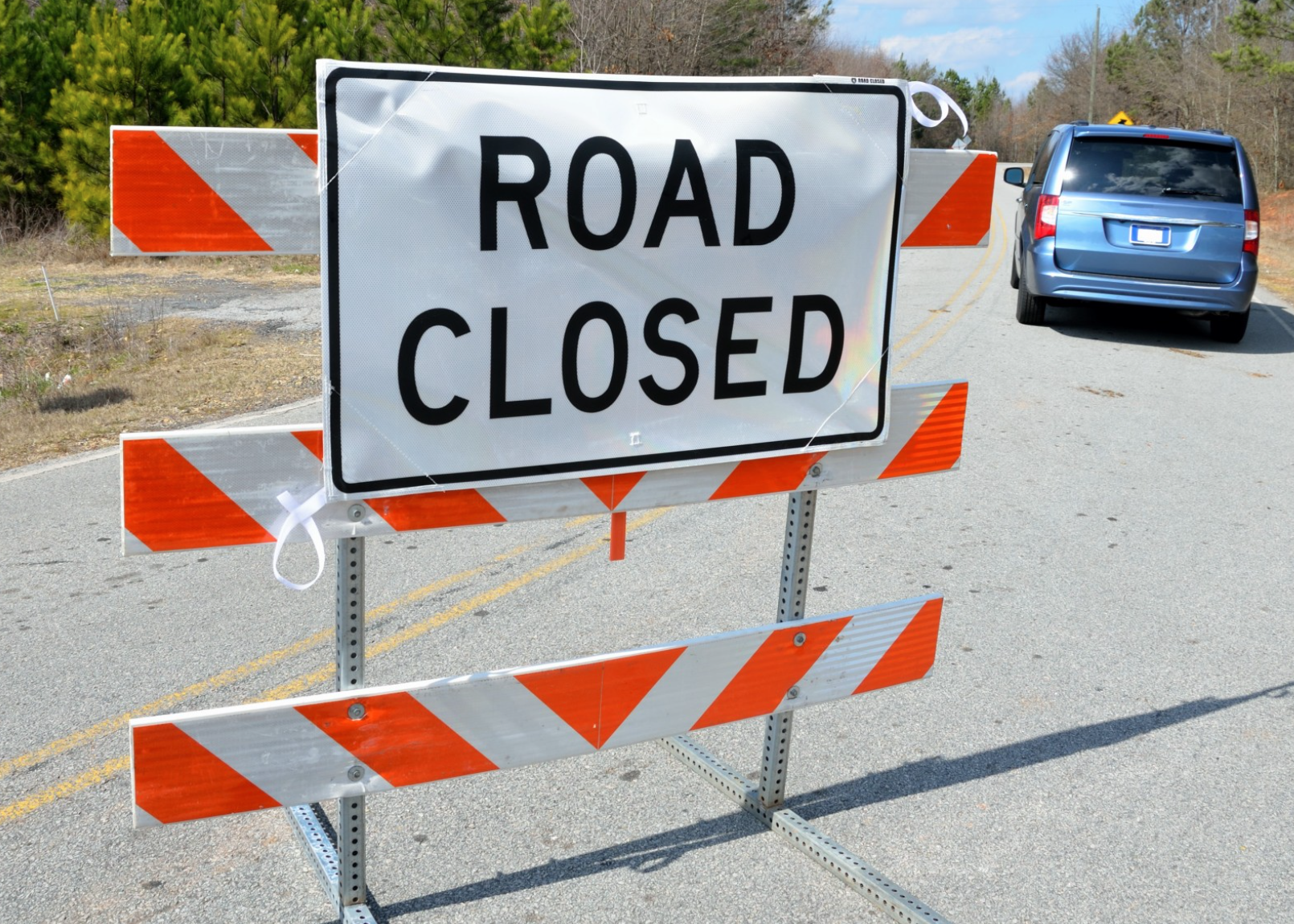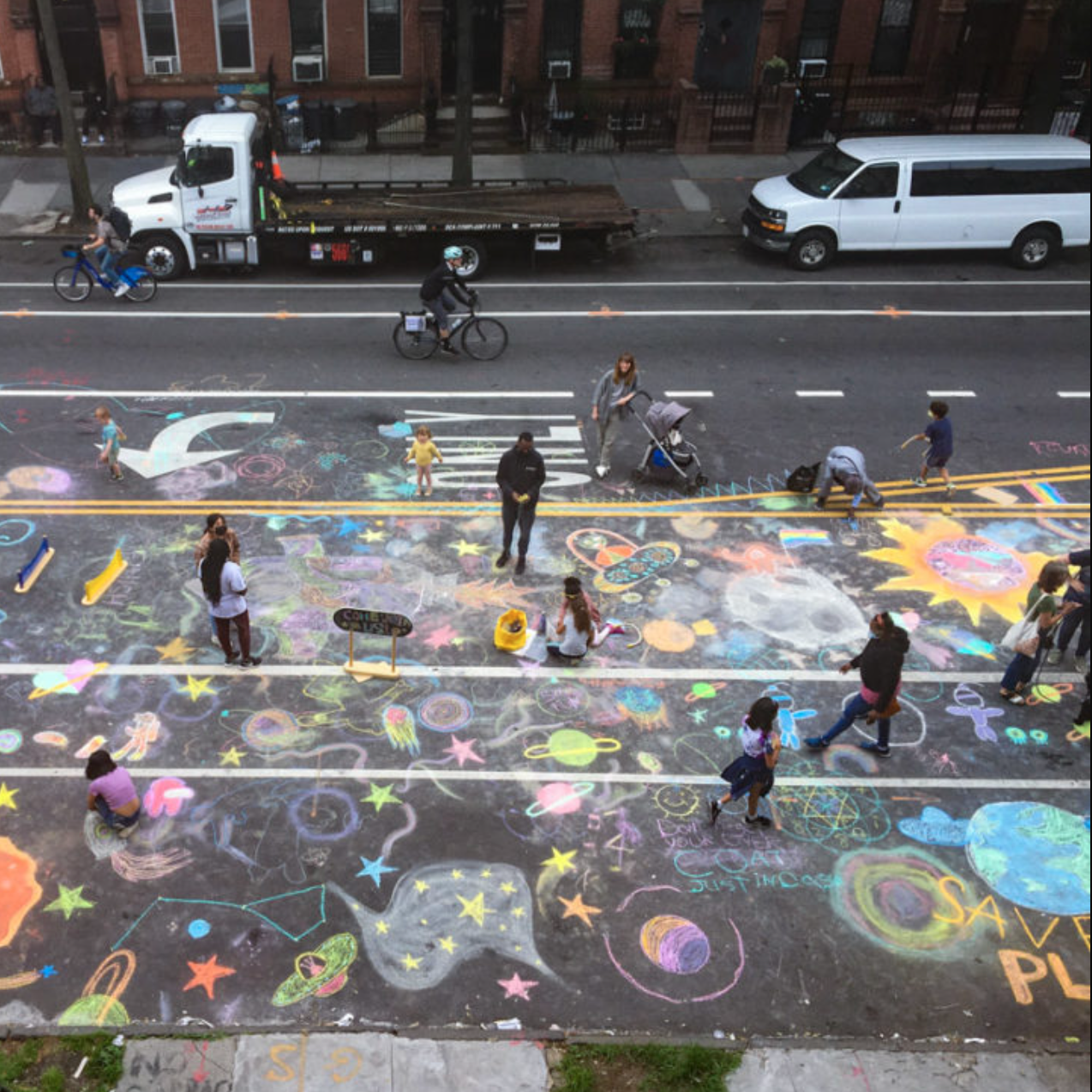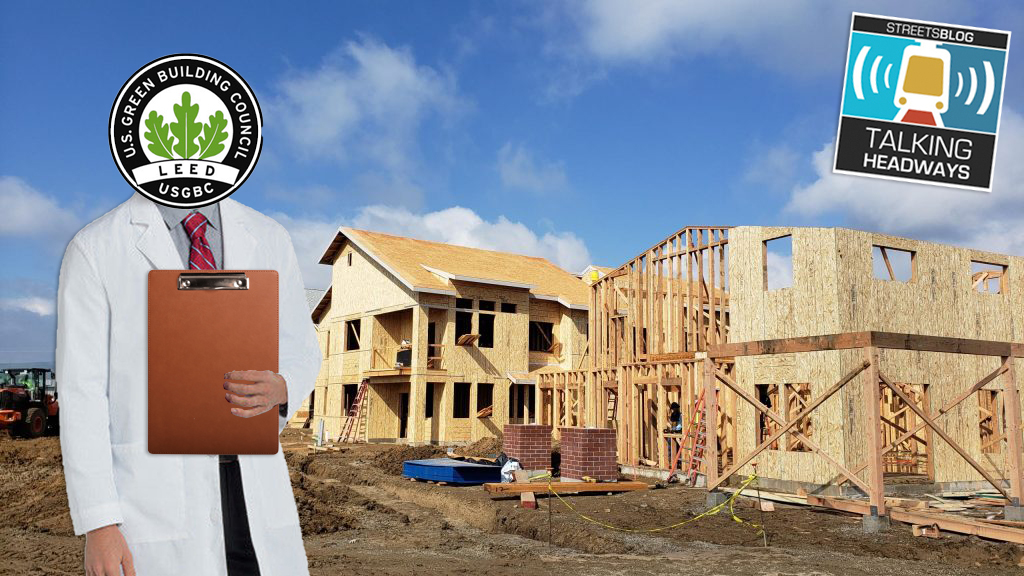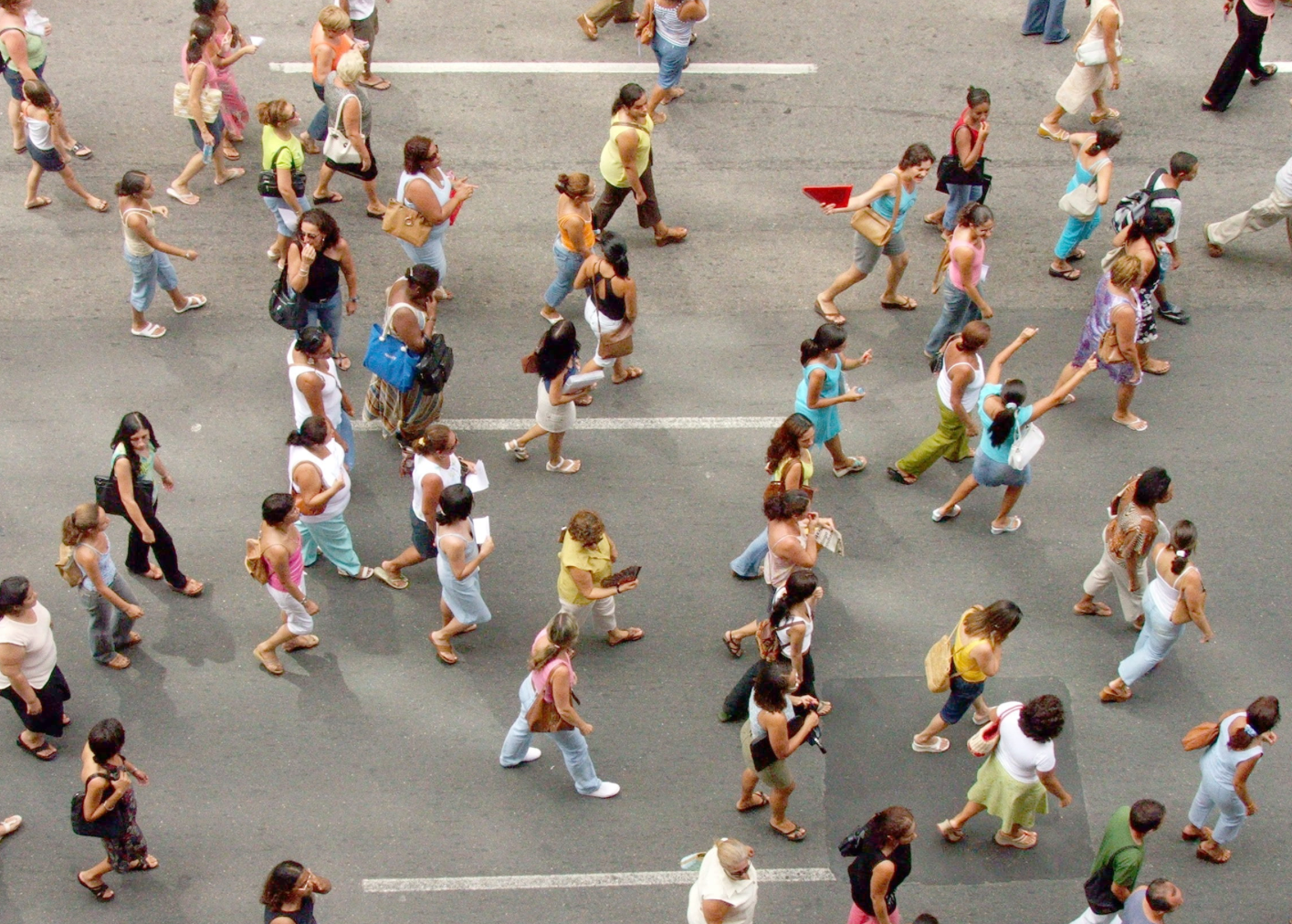Beginning around 2005, Americans' driving habits seemed to change in fundamental ways. Everyone was driving less, and younger people were putting off drivers licenses and car purchases longer than their parents' generation did.
Some of these changes appear to have staying power, but while per capita driving remains well below the 2005 peak, it's been trending upward since 2014. A rebounding economy and cheap gas have changed the equation.
Writing at Medium, urban planner Sarah Jo Peterson looks at how trends in car ownership rates have changed over this period. Census data on the number of cars per household show that after growing for a few years, the share of car-free households in America has dropped below 2006 levels:
The boom did happen. The green and blue lines on the above chart for the United States show the dramatic growth in car-free living and families with only one car since 2006, but their numbers peaked in 2012–2013. By 2016, the total growth in car-free households (the green dot) and car-one families (the blue triangle) had sunk below household growth overall (the black square).
The U.S. Census Bureau doesn’t provide many pre-packaged tables of its vehicle availability data, but it does look at car-free households by age of the householder and by home ownership versus renting. Between 2015 and 2016, the only category with an increase in car-free living above the margin of error is householders age 65 or older who rent. Around 55,000 households led by young adults (ages 15 to 34) abandoned car-free living, about twice the margin of error.
Disentangling the effects of the economy, public policy, and individual preferences on driving and car ownership is a difficult task. But the recent increase in car ownership suggests that as joblessness declines, more people feel that they need a car. This is in line with research from UCLA that attributed much of the decline in driving among young people circa 2009 to rising youth unemployment.
It's worth noting that in two states Peterson examined -- New York and Washington -- there are still more car-free households now than in 2006. It's probably not a coincidence that New York City has the most well-developed transit system in the nation, and Seattle has managed to make significant improvements to its bus and rail systems in recent years.
There's nothing predetermined about changes in travel behavior. It will take a much stronger public policy commitment to transit, biking, and walking before many Americans feel comfortable opting out of car ownership.
